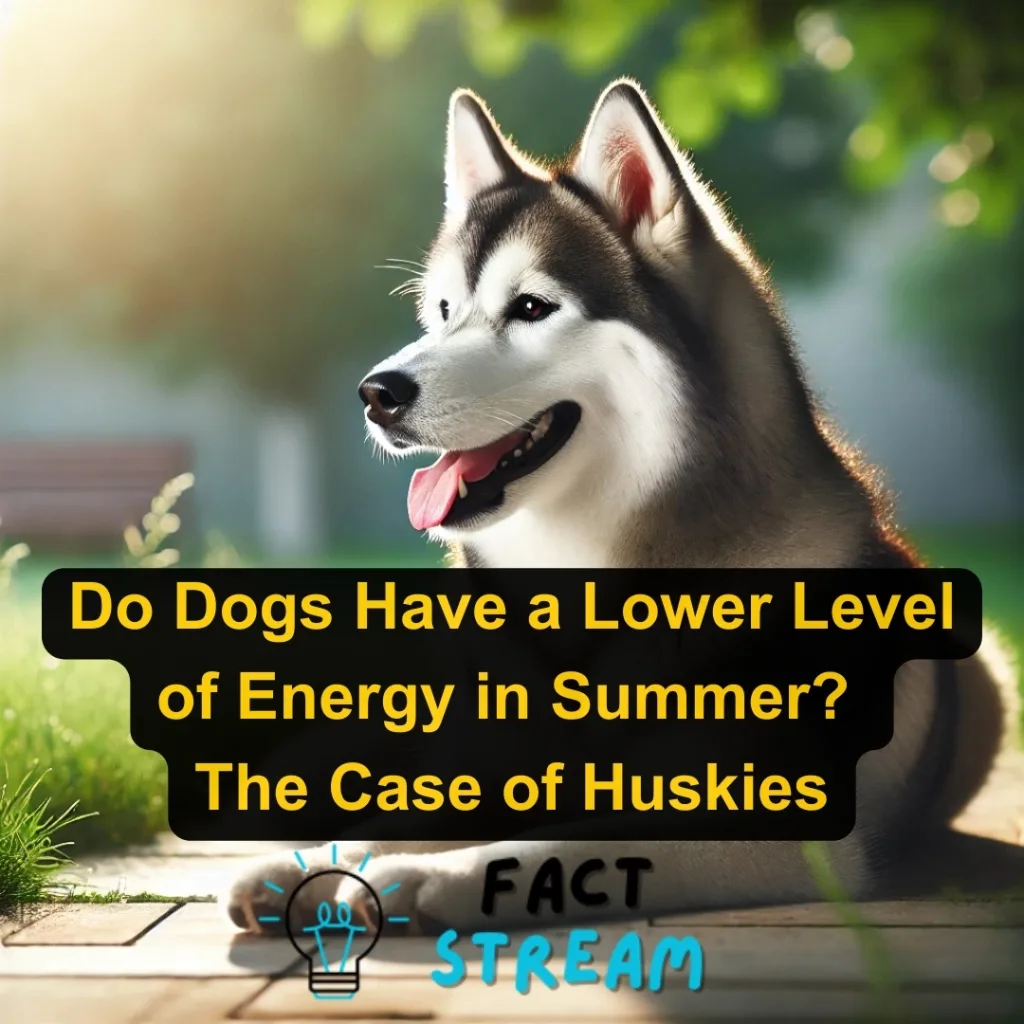Do Dogs Have a Lower Level of Energy in Summer? The Case of Huskies
Siberian Huskies, renowned for their boundless energy and love for the cold, often leave owners wondering how they cope with the heat of summer. Do these dogs experience a dip in their energy levels as the temperature rises? Let’s explore this question and gain insights from experienced Husky owners.
Huskies and Energy Levels: Not Always High
It’s a common misconception that Huskies are always high-energy dogs. While they are undoubtedly capable of expending tremendous amounts of energy, they also enjoy their fair share of relaxation. Andy, a Super Moderator on a Husky forum, explains that Huskies, “under the right conditions,” can be high-energy dogs, capable of covering great distances. However, this doesn’t mean they’re constantly buzzing. They also relish moments of lounging around, just like any other dog breed.
Several Husky owners on the forum share their experiences with their own dogs who seem to defy the stereotype of the hyperactive Husky. Elyse, an owner, describes her rescue Husky as “very quiet, low-energy, non-destructive” and content with spending most of the day sleeping. Similarly, Removed #5 shares that both of their rescue Huskies, while capable of playing, are often content to lie around like “rugs”.
Understanding “Low Energy” in Dogs
The term “low energy” can be interpreted differently. Some owners might consider their Husky low-energy simply because they see periods of calmness throughout the day. However, Elyse points out that a truly low-energy dog displays this trait consistently, regardless of the environment or situation. They don’t demand walks, become destructive without exercise, and are genuinely happy to spend their time resting.
It’s important to distinguish between a Husky who enjoys relaxing at times and one who exhibits a consistently low energy level. While Huskies are generally considered a high-energy breed due to their need for ample exercise, exceptions exist.
Factors Influencing Husky Energy in Summer
While individual personality certainly plays a role, external factors, particularly the summer heat, can impact a Husky’s energy levels.
- Heat and Fullness: Research has shown that a rise in temperature can make dogs feel full more quickly, leading to a reduced appetite and subsequently lower energy levels.
- Reduced Caloric Needs: The heat often makes dogs less active, resulting in lower caloric requirements. This can contribute to a decrease in their overall energy levels.
- Hormonal Changes: Increased daylight hours and higher temperatures during summer might induce hormonal changes in dogs, slowing down their metabolism and making them feel fuller for longer. Consequently, they might eat less and have reduced energy.
Keeping Huskies Cool and Content in Summer
To ensure your Husky stays comfortable and happy during summer, it’s essential to take proactive measures:
- Fresh Water Access: Always ensure your Husky has access to plenty of fresh, clean water throughout the day.
- Frozen Treats: Offer frozen treats, such as bone broth popsicles, to help them cool down.
- Limited Exercise: Restrict exercise during peak heat hours and opt for walks during cooler times, like early morning or late evening.
- Grooming: Regular grooming to remove excess fur can help improve air circulation and keep your Husky cooler.
- Indoor Comfort: On extremely hot days, keep your Husky indoors with air conditioning for their comfort.
Addressing Potential Health Concerns
If your Husky displays a sudden and significant decrease in energy, coupled with lethargy, loss of appetite, or weight loss, it’s crucial to consult a veterinarian. These symptoms could indicate an underlying medical condition requiring attention.
While Huskies are known for their high energy, it’s crucial to recognize that they also enjoy periods of rest and relaxation. Summer heat can significantly influence their energy levels, making them appear less active than usual. By providing adequate care, adjusting exercise routines, and ensuring a cool environment, you can help your Husky navigate the summer months comfortably and happily.


